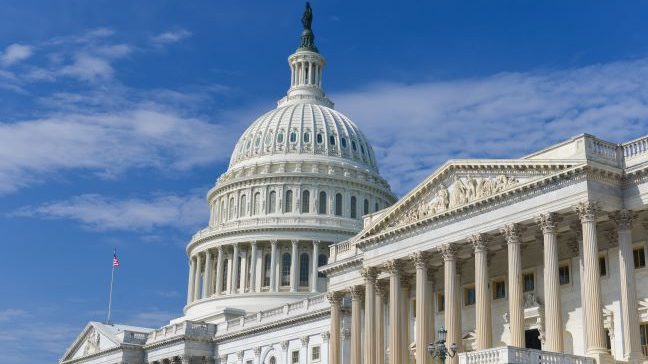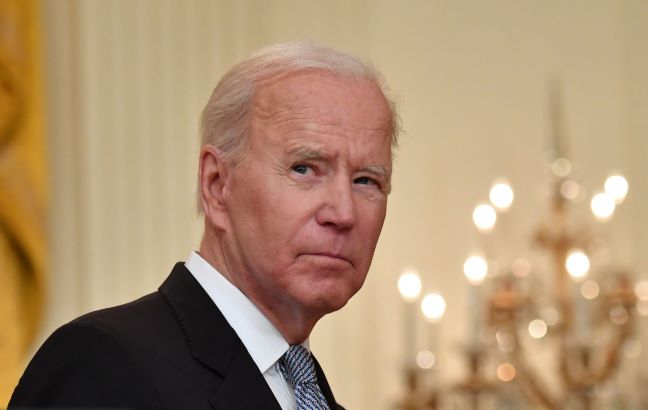
Two years and some change into his presidency, Biden busted out his first veto. On March 20th, 2023, the president shut down an attempt to overturn a retirement investing rule that allows fund managers to factor environmental, social, and governance (ESG) considerations into their decision-making processes.
You’re reading about this here because this veto may have a direct impact on countless investors. That is, if it sticks.
We’re here to unpack what went down, why, and what it might mean for you.
Wait, what is ESG investing?

Before we dig into the timeline leading up to this veto, let’s cover what ESG actually means.
ESG stands for Environmental, Social, and Governance and ESG investing focuses on companies that have clear initiatives and policies in place within these areas.
Examples of environmental factors include:
- Energy
- Waste
- Emissions and pollution
- Water usage
- Natural resource usage
Examples of social factors include:
- Equal pay and opportunity
- Ethical sourcing
- Sexual harassment
- Health and safety
- Social justice training
Examples of governance factors include:
- Leadership diversity
- Information transparency
- Business ethics
- Board structure
- Anti-corruption measures
For instance, a company committed to going carbon-negative that uses renewable energy sources for power might score high marks in the Environmental category.
ESG factors are non-financial in nature but can often affect a company’s performance. Historically, fund managers have been able to use these factors to analyze investment opportunities, though the Trump administration put rules in place to discourage this. The Biden administration reversed these.
When members of Congress wanted to go back to restricting the use of ESG, Biden flexed his executive veto power.
What happened

Let’s break it down, starting with the rule being disputed.
✔️ December 1, 2022: The U.S. Department of Labor issues a final revision of the “Prudence and Loyalty in Selecting Plan Investments and Exercising Shareholder Rights” rule. It clarifies a point of confusion about the use of material ESG factors by investment fund managers.
This final rule permits fiduciaries to consider climate change and environmental, social, and governance factors when making investment decisions or exercising shareholder rights under the Employee Retirement Income Security Act (ERISA).
Under the first version of this rule, proposed in October 2021, a fiduciary’s duty was to choose investments based solely on “pecuniary considerations.” These were defined as economic factors that directly affect an investment’s risk/return.
Many people wondered whether this included ESG factors. These can have objectives that aren’t strictly financial but effects that definitely are, and it wasn’t clear how fiduciaries were supposed to — or allowed — to handle this. Use ESG? Ignore it?
The rule was revised to allow ESG considerations to be included as a relevant risk factor as long as fiduciaries act in accordance with their plan’s objectives (i.e. prudently) and keep their plan holders’ best interest in mind (i.e. loyally).
❗ February 7, 2023: H. J .Res. 30 is introduced to the House, sponsored by Representative Andy Barr, by the House Education and the Workforce committee. The committee seeks to nullify the Department of Labor rule.
This bill is decidedly anti-ESG. Supporters want to put the kibosh on the DOL rule because they feel that fund managers should not use ESG factors in their decision-making and that doing so could be harmful to investors.
✔️ February 28, 2023: H.J.Res. 30 passes the House.
✔️ March 1, 2023: H.J. Res. 30 passes the Senate.
❌ March 20, 2023: Biden vetoes this resolution. The bill does not move forward and the rule remains in place.
Why it happened
Regardless of how you personally feel about ESG investing and whether it’s a positive or negative practice, this veto may impact you.
Essentially, Biden’s veto was in defense of ESG investing, and the message that accompanied his decision expanded on this. The president stated the following:
“There is extensive evidence showing that environmental, social, and governance factors can have a material impact on markets, industries, and businesses. But the Republican-led resolution would force retirement managers to ignore these relevant risk factors, disregarding the principles of free markets and jeopardizing the life savings of working families and retirees.”
His reasoning was that ESG investing is beneficial to investors because it’s realistic. It pays attention to outside factors such as climate change that could have very real impacts on returns for a variety of asset classes. This ultimately provides protection from risk, not increased exposure to it.
Biden’s argument is that allowing managers to make selections more holistically benefits investors. It’s a safer long-term approach to retirement investing since many companies are likely to be impacted by climate change and ESG factors at some point.
Why it matters
Environmental, social, and governance initiatives are unlikely to go away any time soon. In fact, more and more companies are joining the cause with new initiatives and increased transparency.
When it comes to long-term investing, the goal is to think big picture and reduce risks. But there are two sides to this argument.
The controversy
Supporters of the “Prudence and Loyalty” rule, and now of Biden’s veto, argue that the “big picture” should include ESG factors even though these aren’t exclusively financial because they can have financial impacts. For instance, companies with policies in place to drive social change might garner more business than those that don’t and outperform them.
Opponents of the rule argue that ESG is too politically-charged and pushes an anti-capitalist agenda. Favoring ESG companies in investing could squeeze out other corporations and tilt the market, and this side is concerned that fiduciaries would put too much emphasis on causes rather than numbers (i.e. beliefs > money).
What the veto really means
Fiduciaries are obligated to protect their plan holders’ money. By vetoing this bill, Biden is arguing that ESG investing can help to accomplish this.
Can the bill still pass?
Technically, this isn’t over. There’s still a chance, however slim, that the GOP manages to reverse the rule after all.
But overriding a veto requires a two-thirds majority in Congress, and this is unlikely to happen considering the bill trying to squash the rule was hotly contested.
The takeaway
We’ll be keeping an eye on how this situation unfolds. We’re curious to see if Biden has any other plans for that veto pen, but making political predictions isn’t really what we do here.
Will Biden support ESG initiatives in the future? Maybe, maybe not. Right now, it doesn’t seem like the president is championing anything as much as he is just trying to protect investors.
Original Article: https://conservativeroundup.com/businessandmoney/addarticletowebsite.php?edit=https%3A%2F%2Fwww.moneyunder30.com%2Fbidens-first-veto









